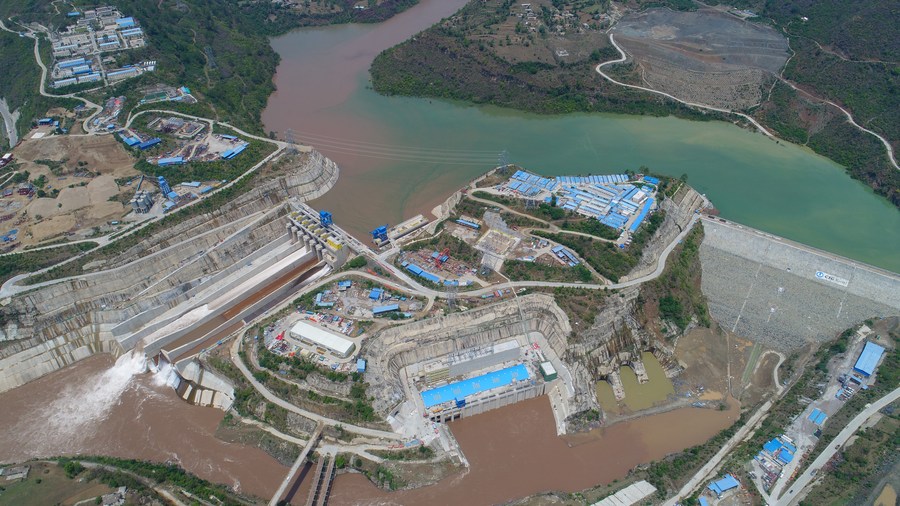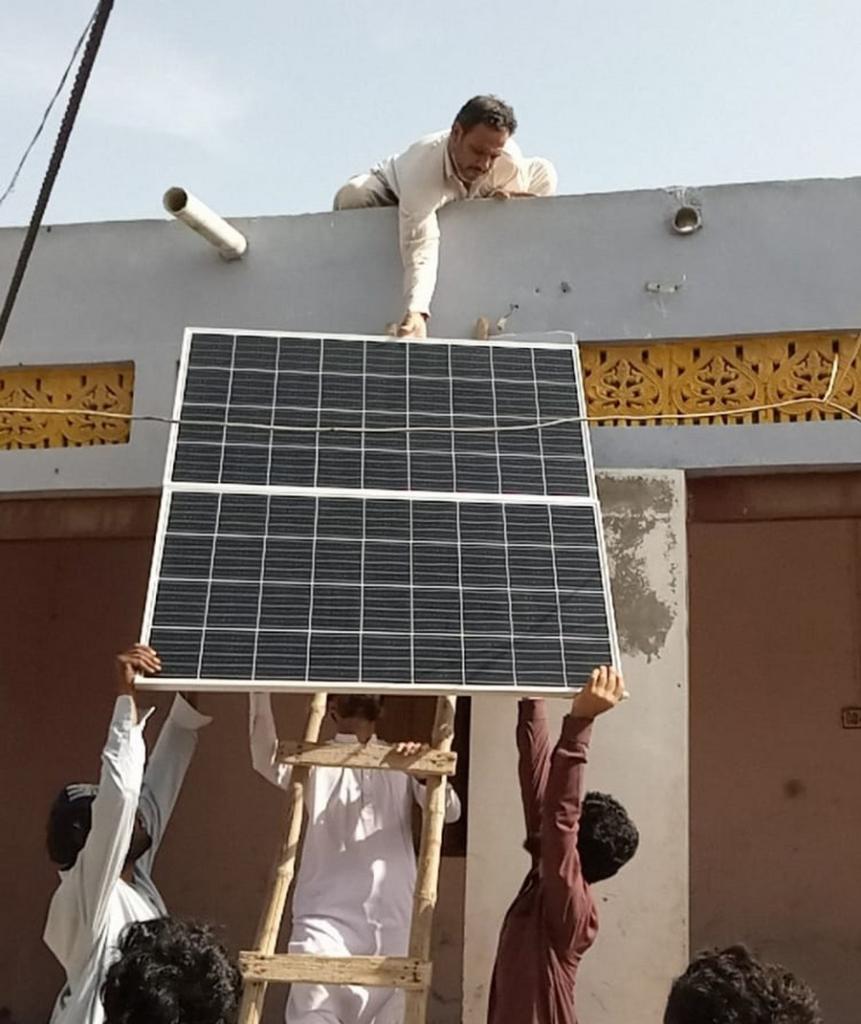China's greener vision supports Pakistan in realizing renewable energy targets: experts

Aerial photo taken on June 22, 2022 shows a view of Karot Hydropower Plant in Pakistan's eastern Punjab province. (CTG/Handout via Xinhua)
Pakistan aims to generate 60 percent of the country's energy from renewable resources by 2030, and the role of China remains critical in this regard, Pakistani experts say.
by Raheela Nazir
ISLAMABAD, March 15 (Xinhua) -- With Pakistan facing pressing environmental and climate change predicaments, Pakistani experts and officials believe that China's notable transition to greener policies is helping Pakistan realize renewable energy targets under the Belt and Road Initiative (BRI).
Pakistan aimed to generate 60 percent of the country's energy from renewable resources by 2030, and the role of China remained critical in this regard, said the experts on Wednesday while addressing a seminar titled "Renewable Energy and CPEC 2.0: The Way Forward."
Speaking on the occasion, Mustafa Hyder Sayed, executive director of the Islamabad-based think tank Pakistan-China Institute, said that China-proposed BRI provides a gigantic opportunity for joint efforts to address global environmental challenges and promote sustainable development goals, especially in the Global South.
Over the last three decades, the country has witnessed over 170 percent increase in carbon emissions and gross domestic product losses owing to environmental degradation and climate change, Sayed said, highlighting that there is an urgent need for forging action plans and greener policies by learning from the Chinese experience and technology.
Moin ul Haque, a diplomat and former Pakistani ambassador to China, said that other than laying a vast network of roads from the south, east and north of the country, China has helped Pakistan generate 8,000 megawatts of electricity, including clean and green energy by building hydro, solar and wind plants.
"The two countries agreed to promote economic, social and fiscal as well as environmental sustainability of the CPEC (China-Pakistan Economic Corridor) projects. We are happy to have China on our side when Pakistan embarks on a journey of green transition," he said.
Under CPEC, Pakistan and China also underlined the participation of third parties into the project, which is beneficial in terms of revenue, expertise, additional financing and advanced technology from other countries, he added.

Workers install a China-donated solar panel at a house in Gwadar, Pakistan, March 14, 2022. (Str/Xinhua)
Calling for enhanced cooperation between Pakistan and China and other relevant international partners, Hassan Daud Butt, senior advisor at the China Study Center of the Sustainable Development Policy Institute, an Islamabad-based think tank, stressed the need to accelerate the transition towards renewable energy adoption.
"Focus should be on new initiatives, investments, and technological advancements in the renewable energy sector of Pakistan," Butt said.
"We need to promote knowledge-sharing among stakeholders, including the government, academia, industry, and civil society, to find bottlenecks, prospects, and best practices to foster environmental stewardship and expedite our journey towards sustainable development within the CPEC framework," he added.
The expert also emphasized encouraging partnerships and consensus-building mechanisms to promote inclusive and equitable participation in CPEC-related renewable energy projects.


